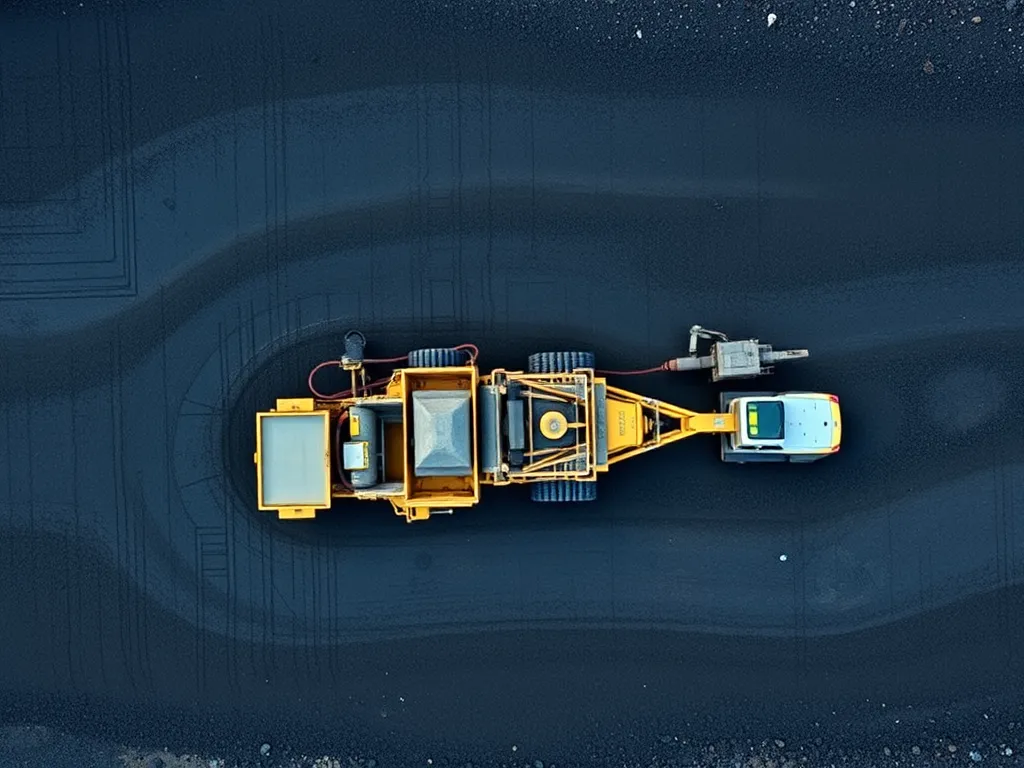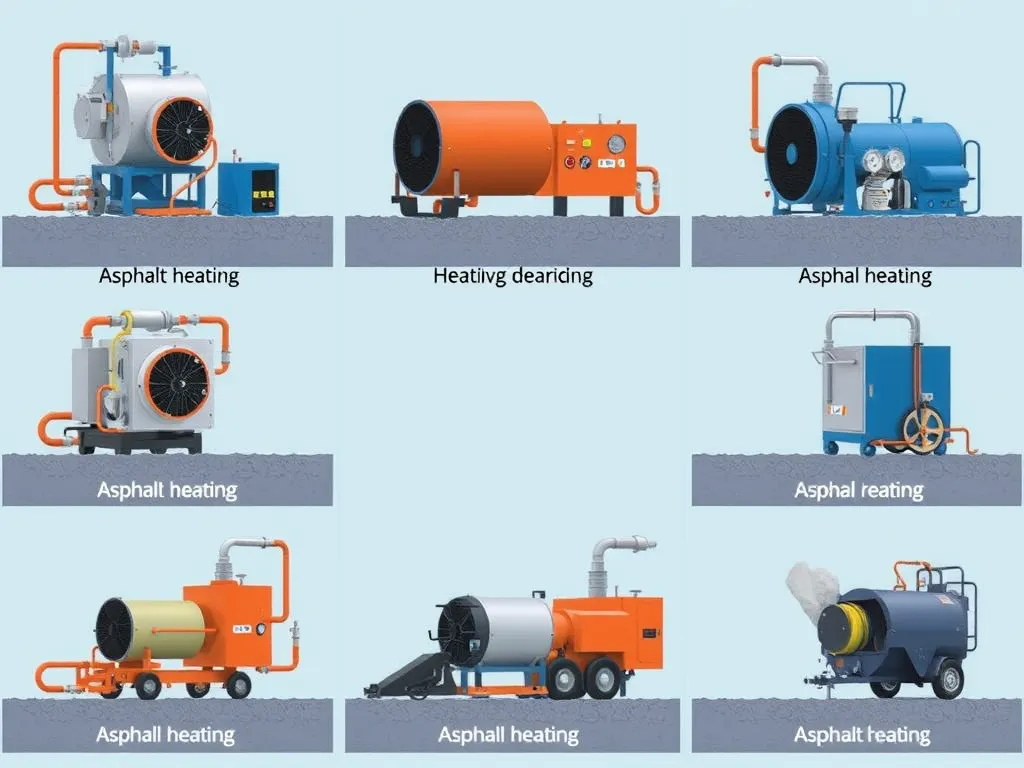Crunching the Numbers: Driveway Upgrades That Pay Off
Published on: June 4, 2025 | Last Updated: April 14, 2025
Written By: George Voss
Analyzing return on investment (ROI) for driveway upgrades means comparing upfront costs to long-term benefits like increased home value, reduced maintenance, and improved curb appeal. Homeowners weigh material costs against durability, calculate labor expenses, and estimate how different surfaces impact property valuations. Key factors include local climate impacts on pavement, installation timelines (7-14 days for asphalt vs. 21-28 for concrete), and material lifespans ranging from 15-30 years.
This guide breaks down asphalt versus concrete costs ($3-$7 vs. $6-$15 per square foot), paver ROI calculations, and gravel’s budget-friendly pros/cons. Explore financing options like home equity loans, discover how permeable pavers reduce stormwater fees by 15-30%, and learn why 90% of realtors recommend driveway upgrades for resale. We’ll show which improvements deliver the best payback—from sealcoating ($0.15-$0.25/sq ft) that extends asphalt life 5+ years to width expansions that boost functionality.
Contents
Factors Influencing Driveway Upgrade ROI
Driveway upgrades require balancing upfront spending with future benefits. Four key elements shape financial outcomes.
Initial Costs Vs. Long-term Value
Upfront installation prices range from $2.50-$5 per square foot for asphalt to $10-$30 for decorative pavers. Cheaper materials like gravel ($1-$3/sq ft) need yearly replenishment, while premium options last 25+ years. A 20-year cost comparison shows:
| Material | Install Cost | Maintenance/Yr | Lifespan |
|---|---|---|---|
| Asphalt | $3,500 | $150 | 20 years |
| Concrete | $7,000 | $75 | 30 years |
| Permeable Pavers | $12,000 | $25 | 40+ years |
Material Selection and Durability
Superpave-rated asphalt mixes with PG 64-22 binder withstand -30°F to 120°F temperatures. Concrete’s 4,000 PSI strength resists cracking but requires expansion joints. Permeable pavers with 1/4″ joint spacing handle 8″ of rain hourly. Properly compacted bases add 35% to project lifespan.
Impact on Property Valuation
National Realtor Association data shows fresh asphalt driveways yield 75% ROI during sales. Decorative pavers boost curb appeal but only return 50% of their higher cost. Over-improving beyond neighborhood standards drops ROI by 18-22%.
Regional Climate and Market Preferences
Midwest freeze-thaw cycles favor flexible asphalt over rigid concrete. Southwest markets prefer stamped concrete with integral color ($8-$12/sq ft). Coastal regions see 12% higher ROI on permeable systems meeting stormwater regulations. Rural areas benefit most from gravel ($0.15/ton locally sourced).
With these factors in mind, the next step involves breaking down specific material costs versus their financial returns.
Cost Analysis Of Driveway Materials
Picking a surfacing option impacts both upfront spending and long-term gains. Comparing material costs against lasting power and property value lift forms a critical part of any ROI calculation.
Asphalt Driveway Investment Return
Hot mix asphalt (HMA) installations typically run $3-$5 per sq ft. This budget-friendly option boasts a 15-20 year lifespan with annual maintenance costs under $0.25 per sq ft. Key factors boosting asphalt driveway ROI:
- Fast installation (1-2 days for standard jobs)
- Low-cost crack sealing at $0.10-$0.15 per linear foot
- 94%+ recyclability for future replacements
Data from 2023 NAPA studies shows asphalt driveways can lift property values by 3-5% in Midwest housing markets.
Concrete Driveway Cost Vs. ROI
Portland cement concrete driveways demand $8-$15 per sq ft initially but last 30+ years. ROI calculations must factor in:
- $1.50-$3.00 per sq ft for joint resealing every 5 years
- 15% higher maintenance costs in freeze-thaw zones
- 50% longer curing time vs. asphalt
Stamped concrete surfaces show 6-8% higher value gains in coastal markets but cost 40% more than basic pours.
Paver and Brick Driveway Financial Analysis
Interlocking pavers carry a $15-$30 per sq ft price tag but offer unique ROI advantages:
- 25+ year lifespan with modular repair options
- 5-10% property premium in luxury markets
- Permeable systems cut stormwater fees by 30% in urban zones
Labor accounts for 60% of total costs – DIY installation can slash budgets by half but risks voiding warranties.
Gravel Driveway Cost Effectiveness
Crushed stone driveways cost $1-$3 per sq ft initially but require annual regrading at $0.50-$1.00 per sq ft. Key ROI factors:
- 10-year costs match asphalt in high-traffic areas
- Limited impact on property valuation (0-1% lift)
- Ideal for rural lots over 1 acre
Adding geotextile fabric ($0.35 per sq ft) cuts long-term maintenance by 40% through soil stabilization.
With material costs mapped, smart planning turns to funding options and hidden costs that sway final returns. Next, a breakdown of financial factors shaping project viability…
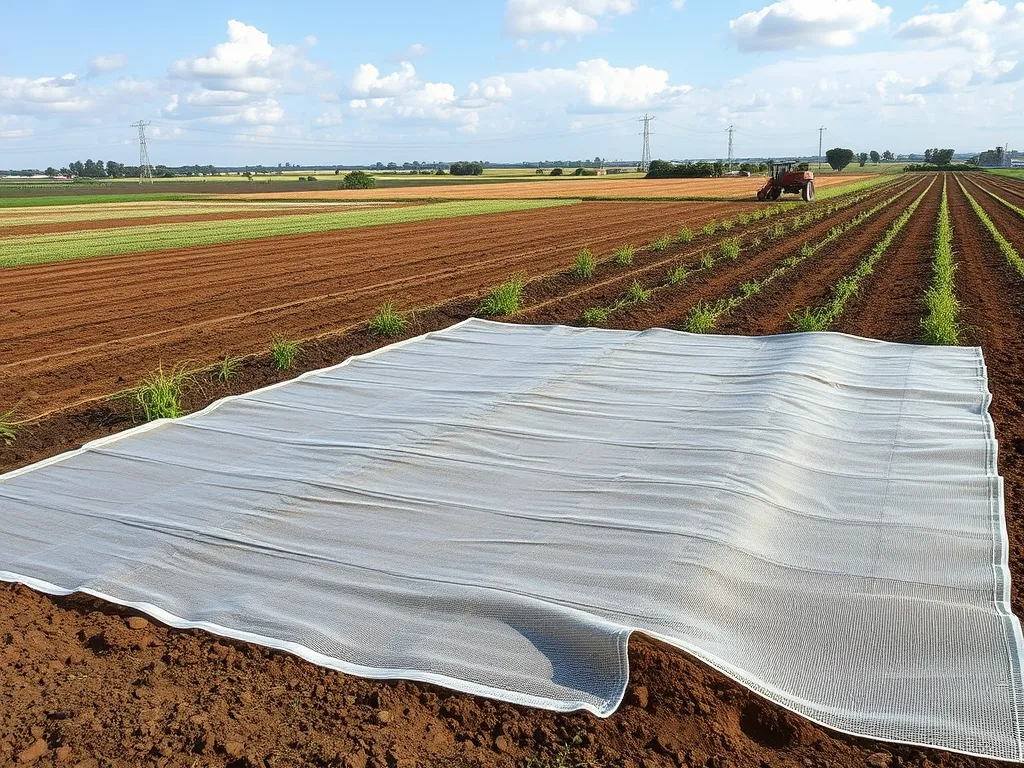
Key Financial Considerations
Smart financial planning separates profitable driveway projects from money pits. Focus on these four areas to align upgrades with budget realities.
Financing Options for Driveway Improvements
Homeowners spend $4,700-$15,000+ on driveway replacements. Explore loans through home equity lines (3.5%-8% APR) or FHA Title 1 loans for amounts under $25,000. Some contractors offer 12-60 month payment plans, though rates often exceed 10%. Cash-out refinancing works for large projects but extends mortgage terms.
Labor and Installation Expenses
Labor eats 40%-60% of total project costs. Asphalt crews charge $2-$5 per square foot versus $8-$15 for interlocking pavers. Regional wage gaps matter – Midwest installers average $45/hour vs. $75/hour in coastal metros. Factor in 10%-20% extra for subgrade prep when replacing old surfaces.
Permitting and Regulatory Costs
63% of municipalities require driveway permits ($75-$400 average). Coastal zones may demand permeable surfaces ($1.50-$4 extra per sq ft) to meet stormwater rules. Historic districts often mandate specific materials – brick costs 30% more than standard concrete but may boost resale value.
Cost Vs. Lifespan Comparison
Asphalt lasts 15-20 years with $0.15-$0.25 annual upkeep but needs sealing every 3-5 years. Concrete spans 25-40 years but costs 45% more upfront. Composite pavers offer 50+ year lifespans yet require $3-$7 per sq ft in base materials. Calculate cost-per-year: asphalt ($4.50), concrete ($6.80), pavers ($9.20).
With financial factors mapped, let’s explore how targeted upgrades amplify returns.
Also See: EN 14023 (Specification for Polymer Modified Bitumens)
Maximizing ROI Through Strategic Upgrades
Smart planning transforms basic driveway work into value-boosting projects. Focus on modifications that boost functionality while aligning with what buyers want most.
High-value Surface Treatments
Annual sealcoating at $0.15-$0.25 per sq ft adds 3-5 years to asphalt’s lifespan. For aging pavements, fog seals ($0.50-$1.00/sq ft) or microsurfacing ($2.50-$4.00/sq ft) restore traction and fill cracks without full replacement. Stamped asphalt patterns mimicking brick or stone cost 30% less than actual masonry but lift curb appeal by up to 15%.
| Treatment | Cost/Sq Ft | ROI Boost |
|---|---|---|
| Hot Mix Asphalt Overlay | $1.80-$3.00 | 60-75% |
| Polymer-Modified Sealant | $0.30-$0.45 | 40-50% |
Drainage and Foundation Improvements
Poor drainage slashes pavement lifespan by half. Installing French drains ($10-$16/linear foot) or slot drains ($25-$35/linear foot) stops water pooling. For soils with clay, adding 6” of crushed limestone base ($12-$18/ton) plus geogrid stabilization ($1.20-$2.00/sq ft) cuts cracking risks by 80%.
Width Expansion and Functional Enhancements
Growing from 12-foot to 20-foot width adds parking for 4 cars. Asphalt widening runs $4-$6/sq ft vs. $8-$12 for concrete. Include LED path lighting ($120-$180/fixture) or paver borders ($15-$22/sq ft) for night safety. Data shows dual-purpose driveways with visitor parking zones yield 55-65% ROI at sale.
Curb Appeal Optimization Techniques
Staining existing concrete ($2-$4/sq ft) or adding exposed aggregate ($8-$12/sq ft) draws 23% more buyer interest. Symmetric landscaping with drought-tolerant plants ($3-$7/sq ft install) frames the driveway. Homes with artistic paver aprons sell 9 days faster than plain designs.
| Upgrade | Avg Cost | Appraisal Lift |
|---|---|---|
| Decorative Borders | $1,200-$3,000 | 2.1-3.8% |
| Full Pavers | $4,500-$12,000 | 5.2-7.4% |
Upgrades that mix practicality with visual charm typically outperform basic replacements. Looking ahead, how do sustainability factors play into long-term cost savings?
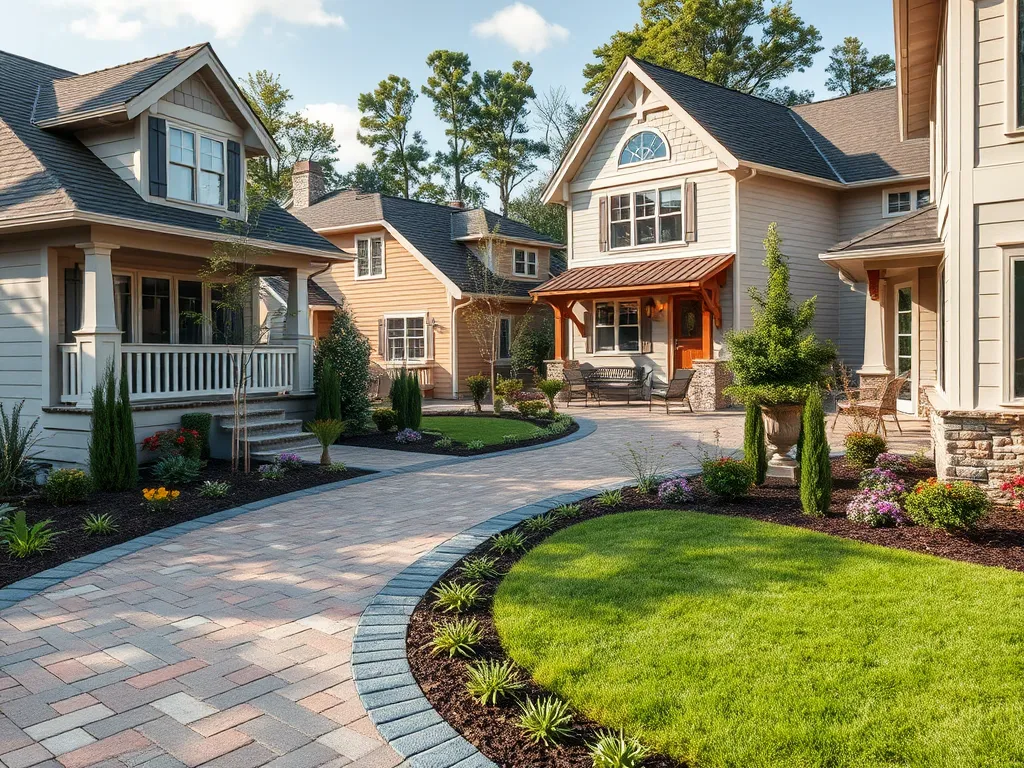
Environmental Considerations
Smart driveway upgrades balance financial gains with ecological responsibility. Material choices and installation methods directly affect stormwater management, resource consumption, and habitat preservation – all factors influencing long-term costs and property value.
Permeable Surface Options
Permeable asphalt mixes with 20-35% void spaces let 3-5 gallons of water per square foot drain hourly. This reduces storm runoff fees by 15-30% in areas with tiered utility pricing. Open-graded surfaces using PG 64-22 binders prevent puddling while maintaining 8-12 year lifespans with proper maintenance. Initial costs run $8-$12 per square foot but may qualify for municipal stormwater credits.
| Material | Infiltration Rate | Cost/SF | ROI Boost |
|---|---|---|---|
| Porous Asphalt | 500 in/hr | $9.50 | 4-7% |
| Permeable Pavers | 1,000 in/hr | $14.75 | 2-5% |
Recycled Material Applications
Recycled asphalt pavement (RAP) mixes cut material costs by 25-30% while maintaining PSI ratings above 3,000. Modern plants achieve 95% recycling rates for milled asphalt, reducing landfill fees by $25-$50 per ton. High-RAP driveways show comparable performance to virgin mixes, with 85% of contractors reporting equal crack resistance over 10-year periods. Some states offer tax deductions for using 30%+ recycled content.
Local Ecosystem Impact Analysis
Bitumen production emits 0.03-0.05 lbs CO2 per pound – 30% less than concrete. However, dark surfaces increase local heat island effects by 2-5°F. Strategic tree planting within 15 feet of driveways can offset this through evapotranspiration. Native plant borders along paved edges reduce erosion by 40% while providing pollinator habitats. Permeable designs help maintain natural watershed patterns, avoiding $2,000-$5,000 in potential drainage correction costs.
These ecological factors tie directly to financial outcomes through tax incentives, maintenance savings, and market demand shifts. Next, we’ll examine how installation methods affect both upfront costs and long-term performance.
Driveway ROI FAQs
What is the Typical ROI on Driveway Replacement?
The typical ROI on driveway replacement can vary significantly based on materials and local real estate conditions. Generally, homeowners can expect an ROI ranging from 50% to 75%, depending on the materials used and the overall curb appeal enhancement. Asphalt driveways tend to yield higher returns compared to more expensive options like decorative pavers.
How Much Value Does a New Driveway Add to Property?
A new driveway can add substantial value to a property, often ranging from 3% to 5% in increased home value. This increase can help offset the initial costs, especially when selling a home. The exact percentage can depend on location and the types of materials used.
Which Driveway Material Offers Best Investment Return?
Asphalt is typically considered the best material for investment return, with its lower upfront costs and decent lifespan. Concrete and pavers can also provide good returns, but their higher initial costs and maintenance needs can reduce overall profitability. Ultimately, the choice should align with both personal preference and market expectations in your area.
Are Driveway Upgrades Always Cost-effective?
Driveway upgrades are not always cost-effective. While they can significantly enhance property value and curb appeal, factors such as over-improving relative to neighborhood standards or choosing high-cost materials can diminish ROI. It’s essential to assess local market trends and average property value increases before making major investments.
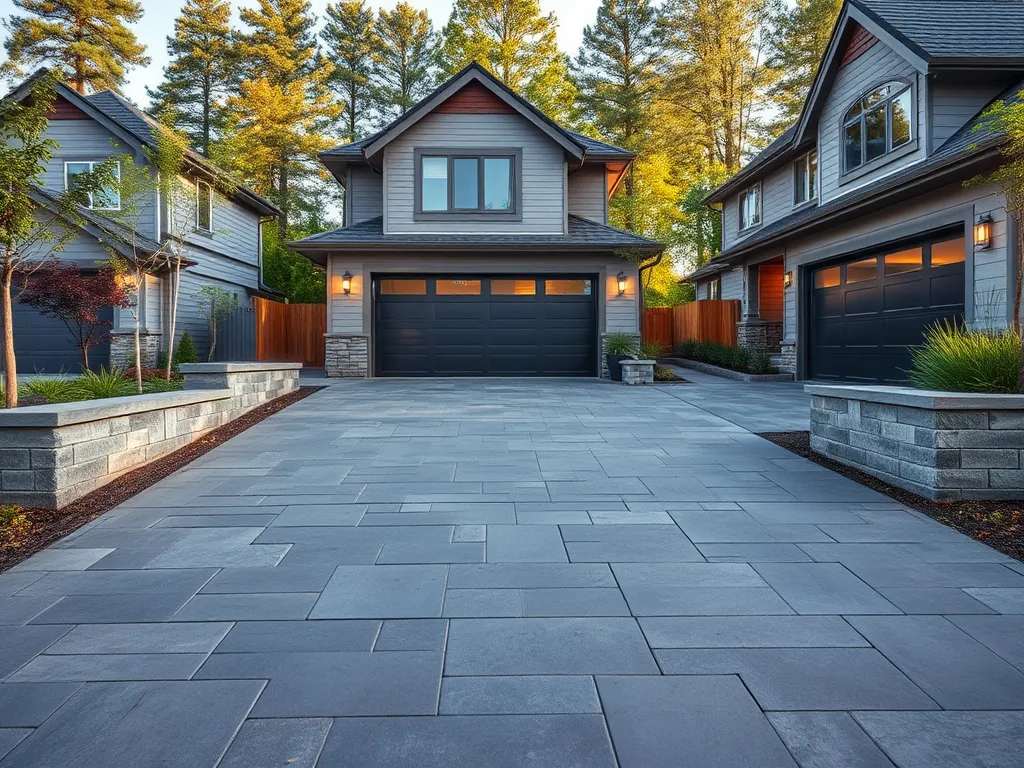
Closing Thoughts
Investing in driveway upgrades can significantly enhance your property’s aesthetics and value. Understanding the nuances of return on investment (ROI) is vital for homeowners. By evaluating factors like initial costs, material choices, and regional preferences, you can make informed decisions.
Each material presents unique financial dynamics. Asphalt, concrete, pavers, and gravel all offer varying ROI potential influenced by durability and installation costs. Moreover, strategic enhancements like drainage improvements and curb appeal optimization can further elevate your investment return.
Don’t forget to consider environmental impacts and explore sustainable options, such as permeable surfaces and recycled materials. These choices not only benefit your property but also support local ecosystems.
For more detailed information and resources on maximizing your driveway ROI, check out Asphalt Calculator USA.
Additional Resources for You:
- National Asphalt Pavement Association (NAPA, Industry Reports & Best Practices)
- Does new driveway increase home value? – Quora
- Does Paving Your Driveway Add Value to Your Home? A Comprehensive Guide for Pennsylvania Homeowners. — Lyons & Hohl Paving
- Will a Paved Driveway Add Value to My Home? | JK Meurer
- Does a New Driveway Add Value to a House? | Blacktop Concepts

